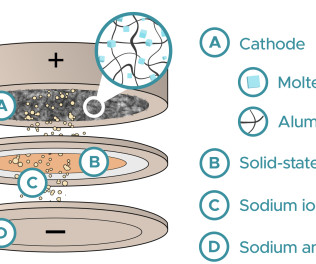New long-duration, extended capacity Na-Al battery design for grid storage
Green Car Congress
MARCH 2, 2023
Researchers led by the Department of Energy’s Pacific Northwest National Laboratory (PNNL) have extended the capacity and duration of sodium-aluminum batteries. The new sodium-based molten salt battery uses two distinct reactions. The team previously reported a neutral molten salt reaction.












Let's personalize your content